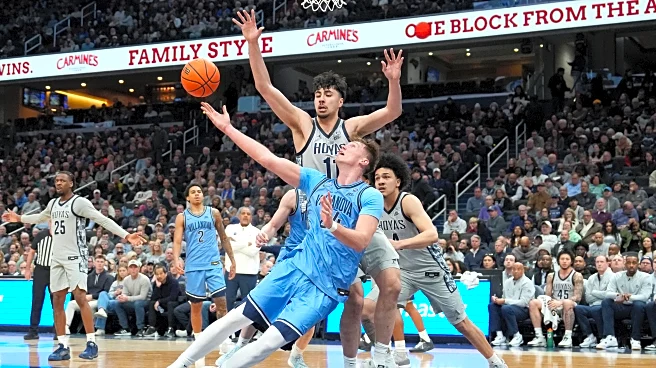What's Happening?
Nestlé has dismissed its CEO, Laurent Freixe, after confirming he violated the company's code of conduct by engaging in an inappropriate relationship with a direct report. This decision comes after an investigation into the matter, marking a significant move by the $244 billion food conglomerate to uphold ethical standards. The company has swiftly appointed Philipp Navratil, a former leader of its Nespresso business, as the new CEO. This incident has sparked discussions about the ethical implications of consensual office romances and the evolving standards for personal behavior expected from CEOs.
Why It's Important?
The dismissal of Nestlé's CEO underscores a growing intolerance for misconduct among corporate leaders, particularly regarding office romances. This shift reflects heightened scrutiny from boards, peers, and stakeholders, emphasizing the importance of ethical conduct in maintaining corporate reputation. The decision to remove Freixe without a severance package is notable, as it contrasts with the 'golden parachutes' often granted to executives. This move may influence other companies to adopt stricter policies and enforcement regarding personal conduct, potentially affecting leadership dynamics and corporate governance practices across industries.
What's Next?
Nestlé's swift action in appointing a new CEO suggests a focus on stabilizing leadership and maintaining business continuity. The company may face increased scrutiny from stakeholders and the public, prompting further discussions on corporate ethics and leadership standards. Other companies might reevaluate their policies on office romances and CEO conduct, potentially leading to broader changes in corporate governance. Stakeholders, including boards and investors, will likely monitor Nestlé's performance under new leadership to assess the impact of this transition.
Beyond the Headlines
The incident raises questions about the balance between personal relationships and professional responsibilities, particularly for high-ranking executives. It highlights the ethical challenges and power dynamics inherent in workplace relationships, prompting discussions on how companies can effectively manage such situations. The case may lead to a reevaluation of corporate policies and training programs aimed at fostering ethical leadership and preventing misconduct.












